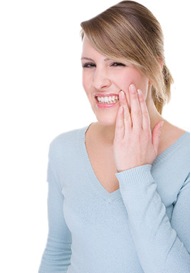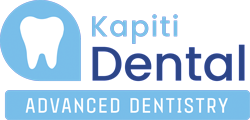
It is caused by one, or more of the many pairs of muscles that control the movement of the lower jaw, not acting together and in harmony. Clinical examination will enable us to give you a full and clear explanation of the condition.
How do I find out if I grind my teeth?
Because grinding often occurs during sleep, most people are unaware that they grind their teeth. However, a dull, constant headache or sore jaw is a tell-tale symptom of bruxism. Many times people learn that they grind their teeth by their loved one who hears the grinding at night.
If you suspect you may be grinding your teeth, talk to Kapiti Dental, we can examine your mouth and jaw for signs of bruxism, such as jaw tenderness and abnormalities in your teeth.
Why is tooth grinding harmful?
In some cases, chronic teeth grinding can result in a fracturing, loosening, or loss of teeth. The chronic grinding may wear their teeth down to stumps. When these events happen, bridges, crowns, root canals, implants, partial dentures, and even complete dentures may be needed.
Not only can severe grinding damage teeth and result in tooth loss, it can also affect your jaws, result in hearing loss, cause or worsen TMJ, and even change the appearance of your face. Sleep bruxism may also be linked with other medical conditions and have an impact on quality of life.
Symptoms of bruxism include
- Teeth grinding or clenching, which may be loud enough to awaken your sleep partner
- Teeth that are worn down, flattened, fractured or chipped
- Worn tooth enamel, exposing deeper layers of tooth
- Increased tooth sensitivity
- Muscle tightness
- Ear ache – because of severe jaw muscle contractions
- Headache
- Chronic facial pain
Treatment
This is usually by provision of a lower, soft, acrylic appliance that is worn at night to help retrain the muscles of the jaw that are no longer functioning in the correct manner, together with a full regime of remedial exercises to be carried out during the day.
Botulinum Toxin has been shown to be very effective in the treatment of Bruxism
KAPITI DENTAL CLINIC HAVE A VAST EXPERIENCE IN THE COMBINED TREATMENT OF THESE CONDITIONS.

